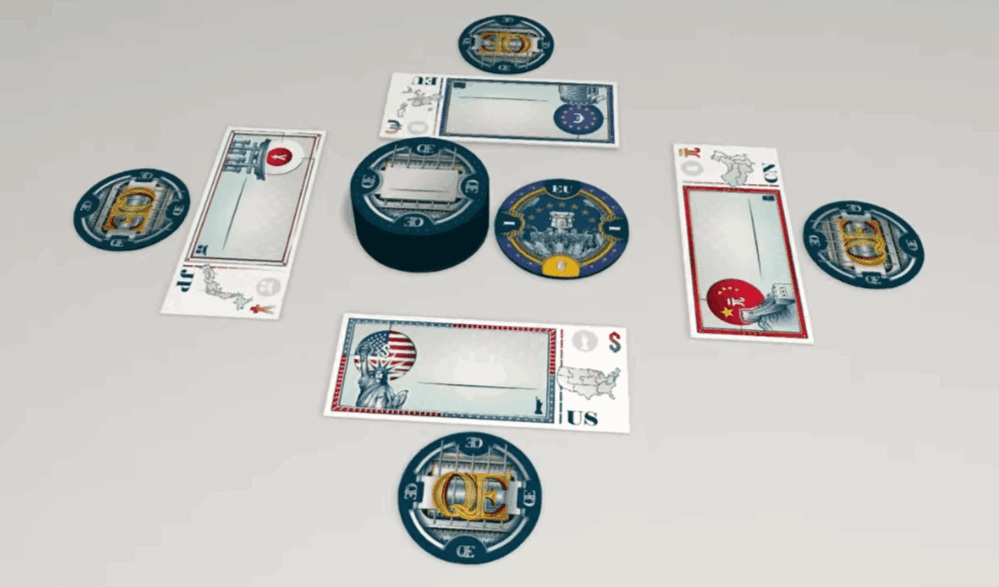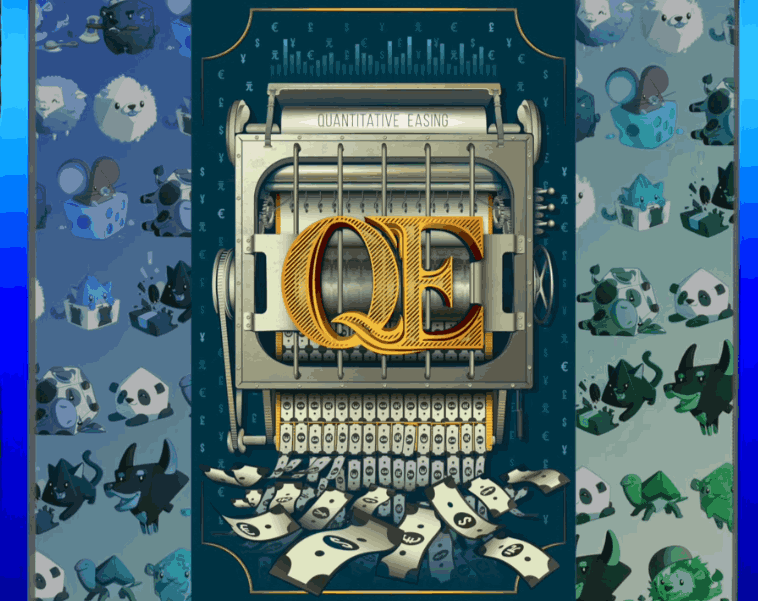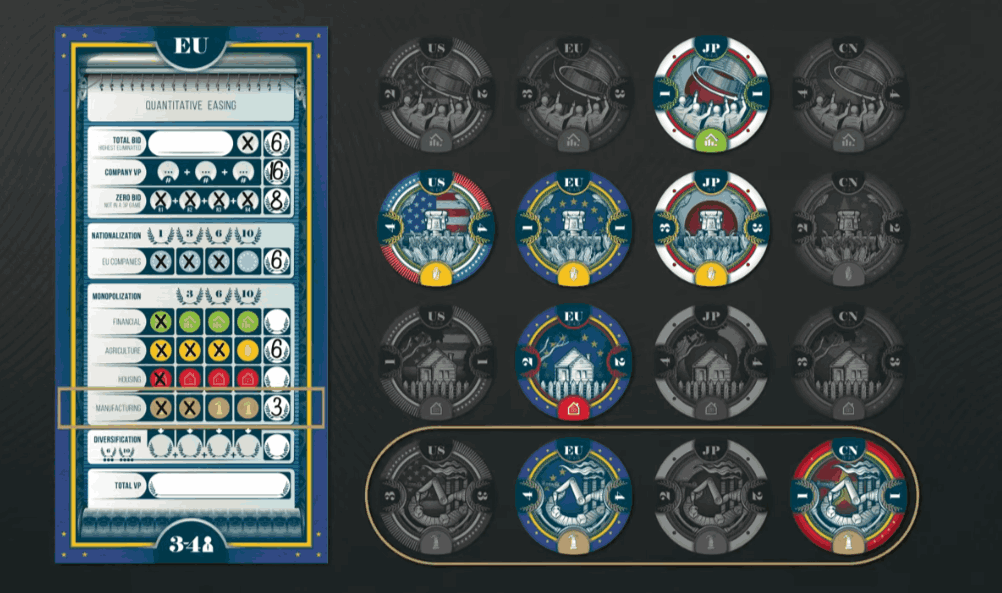
In board gaming, auction games come in a variety of formats. Occasionally, auctions are a minor component of a larger game. In others, the game is the auction. Q.E. is undoubtedly the latter, though. However, you don’t even need to bother about resource management at this point. They have no limits.
Try not to worry about attempting to calculate the exact value of each point because there will be a lot of inflation on it. Money is no object, so go ahead and blow millions. maybe even more.
Q.E. is a 45-minute game designed for 3-5 players, perfect for an auction party setting. 3.–4 players work optimally for Q.E.
GamePlay

Sixteen enterprises will be auctioned off during the game, making for basic gameplay. Each business is in one of four nations and belongs to one of four industries. Every participant begins the game with a single firm and nation allotted to them.
The active player selects an opening bid and flips up the following company tile for each round of the game. After that, each player places a covert bid. The firm that places the highest bid wins, and the auctioneer delivers that person the company tile along with the money they bid (while keeping the number confidential).
Until all sixteen enterprises have been put up for sale, this process is repeated. Players receive points after the game for four categories. First, some points were up for auction on the corporate tiles.

Secondly, companies that fly the same flag as them receive points (Nationalization). Thirdly, they are rewarded points based on the number of enterprises they have successfully monopolized. Fourth, they receive points for diversification, which is having three or four different kinds of businesses.
Q.E. has a catch, though. The player who places the highest winning bet and wins the game immediately loses. The winner is the player with the most points.
Experience with the Game

Q.E. is almost as much fun to invite someone to play as it is to play. “Hey, would you like to play a game of auction where you can just make up numbers and bid whatever you want?” Q.E. isn’t about being shrewd and allocating your funds to the appropriate projects at the appropriate times.
The experience fulfills the promise made on the box’s back, and the design is distinctive. The first business might sell for 1,500. Perhaps the final one brings in 2.3 million. However, no law mandates that things have to be done that way.
A twenty-dollar auction can always be started to see what happens. The participants make their own choices, with the auctioneer serving as a sort of baseline. Additionally, you can place a bid that you are positive is way too high, lose the offer, and never know if you were even close.
Your interest in different companies will alter as the game progresses. Gaining multiples in the same industry will give you points for monopolization. The third farm business will be very valuable to you after you have two. But diversity has its advantages as well, so owning a variety of businesses can be beneficial as well. All the companies are really good.
If some of the corporations offered a higher incentive to the players based on scoring, that would be ideal. You will want every firm you can get early on in the game, so don’t worry too much about its specifics. Additionally, the same businesses are used in each game and are always up for auction. The sequence in which they are offered is the sole variation.
Despite supporting five players, Q.E. performs best with three to four players. Over time, prices do tend to rise, and this is especially more likely when there are five players. In a five-player game, if you are the last player to go up for auction, you will be out of the loop for a while about the types of bids that are winning.
To help with this, there is an additional rule that allows another player to peek at the winning bid once every game when there are five players. Still, I like Q.E. better with less. Prices are more likely to go up and down during the game, and you’ll have a little more control throughout events.
A Word About Versions
Every image of the game’s wooden version comes from one of the game’s first editions. As of the publication of this article, Q.E. is officially on Kickstarter for a third time, for a radically different version of the game.
Rules and components for both the three-player version and the five-player expansion are included in the Kickstarter edition. Although the publisher has only produced a limited number of copies, the five-player expansion was officially designed for the wooden edition. Whichever version you own, the gameplay remains the same, but the parts are significantly changed.
Hits
An original approach to auctions in which you create your currency. plays fast and features a hook that will entice listeners to the table.
Excellent manufacture of business tiles and dry-erase boards.
Misses
All companies are the same and don’t offer much variation in each game.
Due to a lack of information, it doesn’t play as well at five players.
Conclusion
Q.E. is an auction game covered up as a party game. The focus isn’t on resource management, planning, or appreciating the worth of the products being sold. Rather, the experience, the absurd figures, and the insider knowledge are what make everything you bid on enjoyable.
Most people will find Q.E. entertaining as they attempt to comprehend the exact amount of money being printed by the people seated at your table. The only things keeping it from being exceptional are the lack of diversity and curiosity in the businesses themselves.
Final Score: 3.5 Stars – Unmatched experience that no other game can match. While the strategy may not be profound, the fun factor is high.
